By Ray Hagar, Nevada Newsmakers
The 2023 Nevada Legislature, buoyed by large Democratic majorities in both houses, approved a record $12 billion k-12 education budget, with about $2.2 billion of that being new or added money.
Yet increased education funding will remain a priority in the 2025 Legislature as Democratic lawmakers will push for a 10-year plan to eventually fund Nevada k-12 education at the national average, Assembly Speaker Steven Yeager, D-Las Vegas, said this week on Nevada Newsmakers.
"I don't know how much it's going to be," Yeager told host Sam Shad. "I do know, at least for my colleagues and, I think for the governor as well, there is a pressing sense that we've got to at least get to the national average."
It will be a heavy lift, since Nevada consistently ranks at the bottom in various per-pupil spending rankings.
Nevada ranks No. 46 in states' per-pupil spending at $11,120 per pupil, according to the Education Data Initiative. The study lists the national average at about $16,000.
In the World Population Review data, Nevada ranks 48th with $9,124 spent per pupil with the national average at about $12,600.
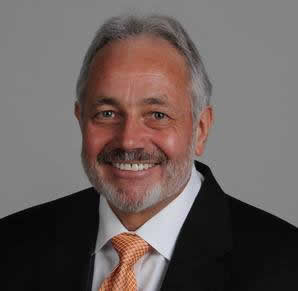
Nevada's Commission on School Funding is crunching numbers now to see exactly where Nevada stands in national rankings, Yeager said. He estimated the commission's report could be completed this summer, well ahead of the start of the 2025 session.
"The national average is a moving target," Yeager continued. "So that's why we're excited to see this updated model coming from the Commission on School Funding," Yeager said.
Yeager's goal of reaching the national average within a decade could be streamlined if Democrats secure veto-proof super majorities (two-thirds) in each house of the 2025 Legislature.
Last session, Democrats had a a super majority in the Assembly and were one-vote shy of a super majority in the state Senate.
Super majorities in both houses would give Democrats veto-proof power to enact new laws, spending and taxes to pay for it.
Republican Gov. Joe Lombardo said earlier on Nevada Newsmakers that one of his primary goals is to elect enough Republicans in the 2024 general election to prevent that from happening.
Yeager was critical of those who may hold a long-standing conservative view that Democrats are "throwing money at education."
"You hear all the time: 'Oh, you're just throwing good money after bad. You're throwing money at the problem,'" Yeager said. "We've never done that in education in Nevada. We've never been anywhere close to the national average.
"So the Commission on School Funding will help with that," Yeager said. "Look at all the other states. I'm not sure what that amount is going to be, but I think we owe it to our students, to our families, to at least get us to the national average."
The successful push for the added education funding in the 2023 session gives Yeager hope the 10-year plan to reach that national funding average can be accomplished.
"So it's going to be a challenge, obviously," he said. "But I think coming out of last session, you see that this (improving education funding) really is a priority of this Legislature. It was one of the places where we were really able to partner with the governor to increase this funding."
Yeager hopes he will have Gov. Lombardo as an ally in the push to reach the national average.
"Every Republican in the Legislature voted against the school funding bill," Yeager said. "That doesn't make any sense to me. But thankfully the governor looked at that and was able to say, 'I think this is an important investment.'
"And so, we'll continue trying to make strides in that field," Yeager said. "But I'm really looking forward to that report, which I think comes out in June or July."
Tracking education spending
Increasing the funding for education has been a consistent push in the Legislature. Making sure it is spent wisely proved nearly impossible for many years.
"You know, that was a real black hole for us as the Legislature," Yeager said said about education spending accountability.
Now however, lawmakers are serious about tracking the money earmarked for education.
"The Legislature is actually mandated now between legislative sessions to bring the school district superintendents in front of them and ask that exact question, 'What are you doing with the money? What are your plans? Can you show progress?
"In addition to that, our legislative auditors are going to be doing performance audits of the school districts," Yeager continued. "So that's not just 'Are you using the money wisely? Is it not being misspent?'
"But (asking) are you getting results? Are you getting performance out of that money? So obviously this is going to take some time," he said.
Breaking up Clark County School District
An opinion poll done last year by Noble Predictive Insights showed about 60 percent of those polled favored the breakup of the Clark County School District.
The CCSD, fifth largest school district in the U.S., oversees about 380 schools and more than 316,000 students.
However, it has consistently been beset by issues such as poor test scores that drag down the entire state's education data, teacher strikes, student violence and drama surrounding the office of superintendent.
Yeager said lawmakers are taking the demand for change in Nevada's largest school district seriously.
"That idea is worth consideration," Yeager said about breaking up the school district. "It's complicated. There's some equity issues about how would you break up the school district and still make sure that we don't have really affluent areas and less affluent areas. So those are real concerns, and those are hard to figure out.
Breaking up the school district, however, could potentially pose a new set of problems, Yeager said.
"What I don't want to do is create multiple school districts with more bureaucracy that are harder to manage, and where we have some (districts) that perform really well and some that don't."
Henderson Mayor Michelle Romero has said she wants a separate school district for schools in her city.
"I understand the frustration," Yeager said about Mayor Romero. "I've talked to the mayor about that. I know where she's coming from, and I've just asked for a little bit of patience as we as a Legislature, try to move forward and figure this thing out."
Mental heath services reform
Mental Heath issues will also be a major concern during the 2025 Legislature, Yeager said.
"You're going to see a lot of emphasis in the next legislative session on mental health and that (includes) building out infrastructure, in the state and the counties," he said.
Yeager said mental-health reform is not only an issue for the Legislature.
"By the way, the counties and local governments have a role to play in this as well," he said. "It's not just the state, but also looking at some of those licensing issues, trying to build the pipeline for professionals."
Yeager sees a need for 'tele-health' technology expansion, especially in rural Nevada where it is sometimes difficult to see a doctor in a face-to-face setting.
"It (tele-health services) is not going to work for everybody," he said. "Sometimes people just want to be in a room together. But when you're in an emergency situation, you may need to be able to tap into an iPad or a computer and actually speak with a mental-health professional. That includes making that (service) available for law enforcement or firefighters who are on the scene and dealing with someone in a mental-health crisis to be able to to remotely bring in a professional."
Expansion of mental health services may prove expensive, Yeager said.
"It's going to take money, for sure," he said. "But I think it's also going to take all of us as a community to realize this has to be a priority for us. And some of that is reimbursement rates (for mental health services from federal and state governments).
"But we're finally starting to have this conversation in a very real way. We can't continue on the path that we're on," Yeager said. "We just can't, especially for our youth, because the pandemic (of 2020) and the lack of being in school really aggravated a lot of those mental-health issues."
Mental-health reform is an area where Democratic legislators and a Republican governor both seek improvement, Yeager said.
"This potentially is one area where we could really work with the governor, because when he was sheriff in Clark County, he set up a system with people calling 911. If it was a police emergency, they got to deal with the police. If it was a mental-health emergency, they (911 callers) were shifted over to mental-health professionals," Yeager said.
"And I thought that was an incredibly smart thing, because with police, fire and teachers, we're asking them to do so many of the jobs that really are not their responsibility. They need to be doing their jobs, not dealing with mental health issues," Yeager said.
"It's an area where we certainly agree that we need to do better," Yeager said. "It's a bipartisan area, so we'll talk about that. The one thing I do want to say, though, is that in the mental health piece -- particularly for people with long-term mental illness -- the housing piece is really important. And so that's one area where we haven't quite figured it out with the governor yet.
"It's not enough just to provide treatment. You've got to have everything included in that," Yeager said. "You've got to have housing, you've got to have jobs, stability. And so we'll continue to work on that.
"But the governor said mental health is a priority," Yeager said. "It is certainly a priority of ours. And I think that's an area where we can work together."
Watch this episode of Nevada Newsmakers.
See the upcoming schedule for Nevada Newsmakers.
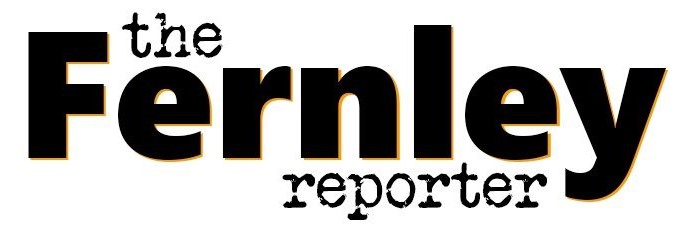



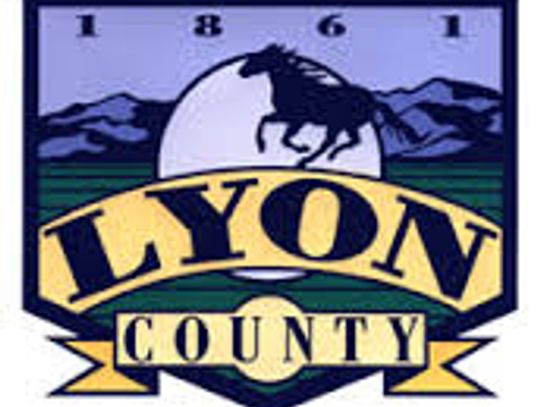
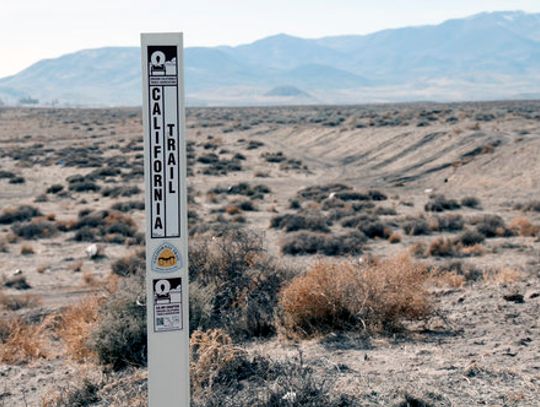

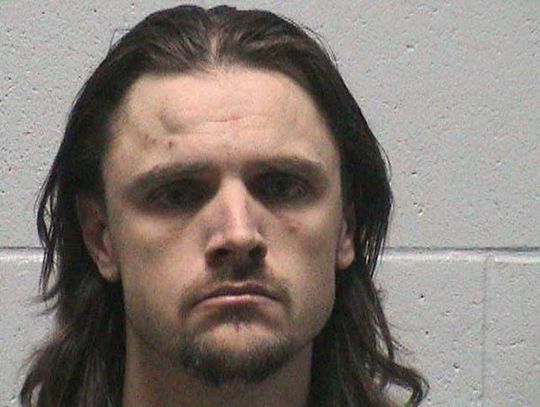

Comment
Comments